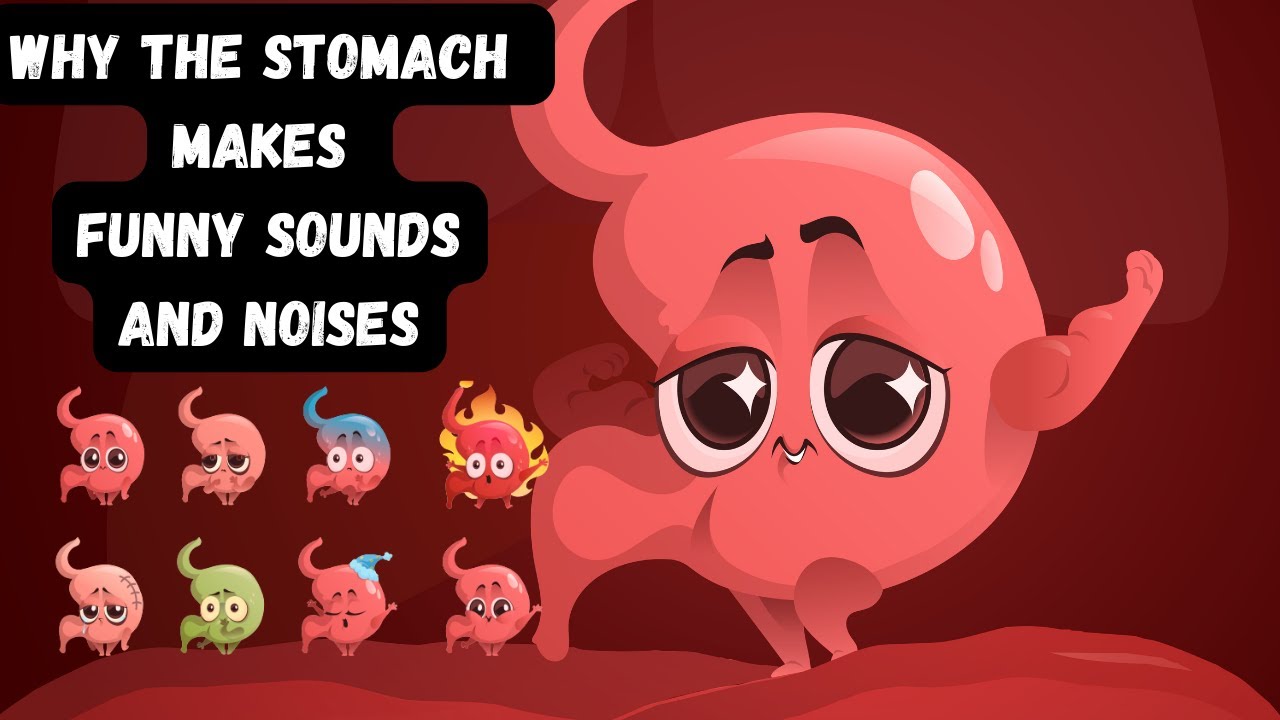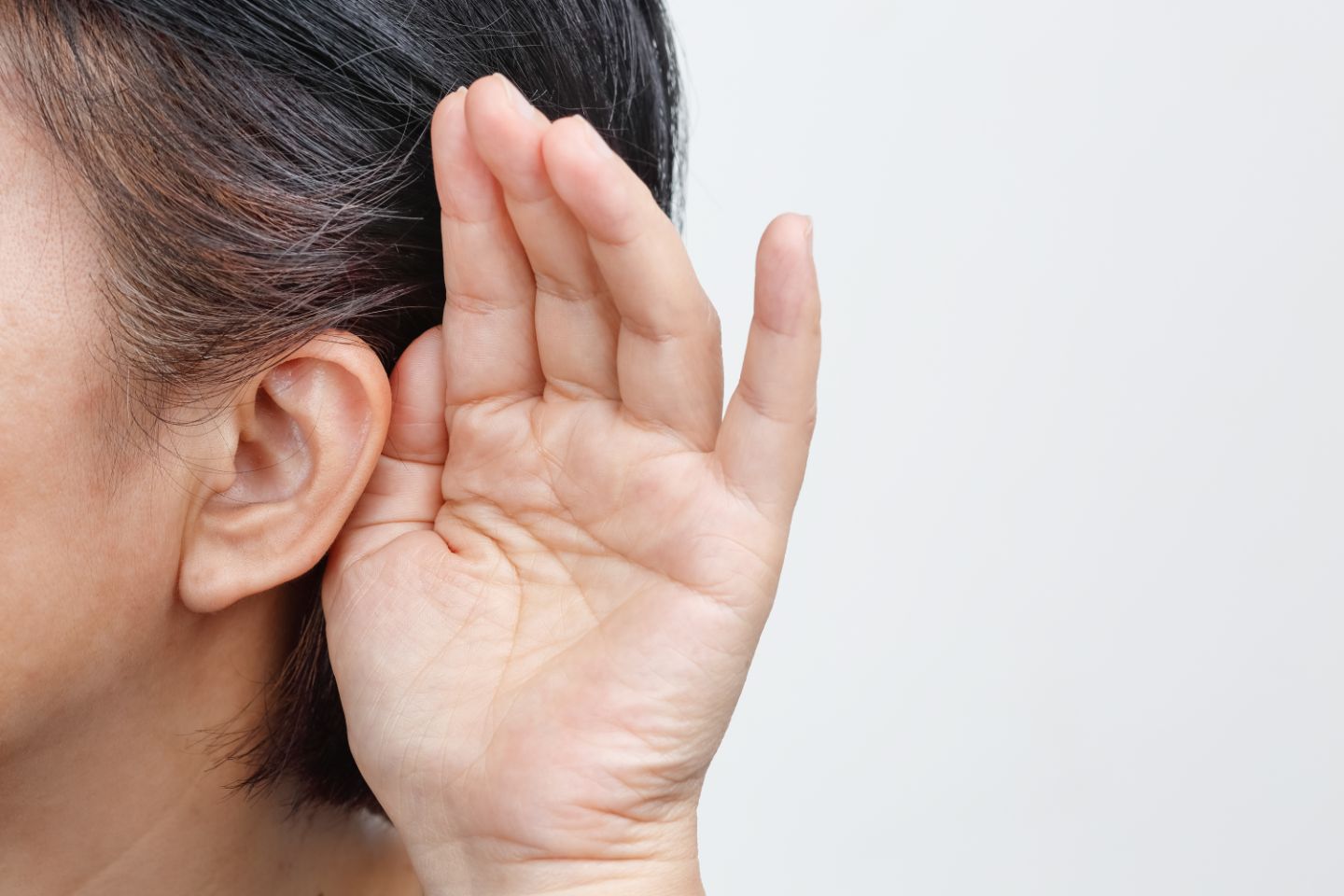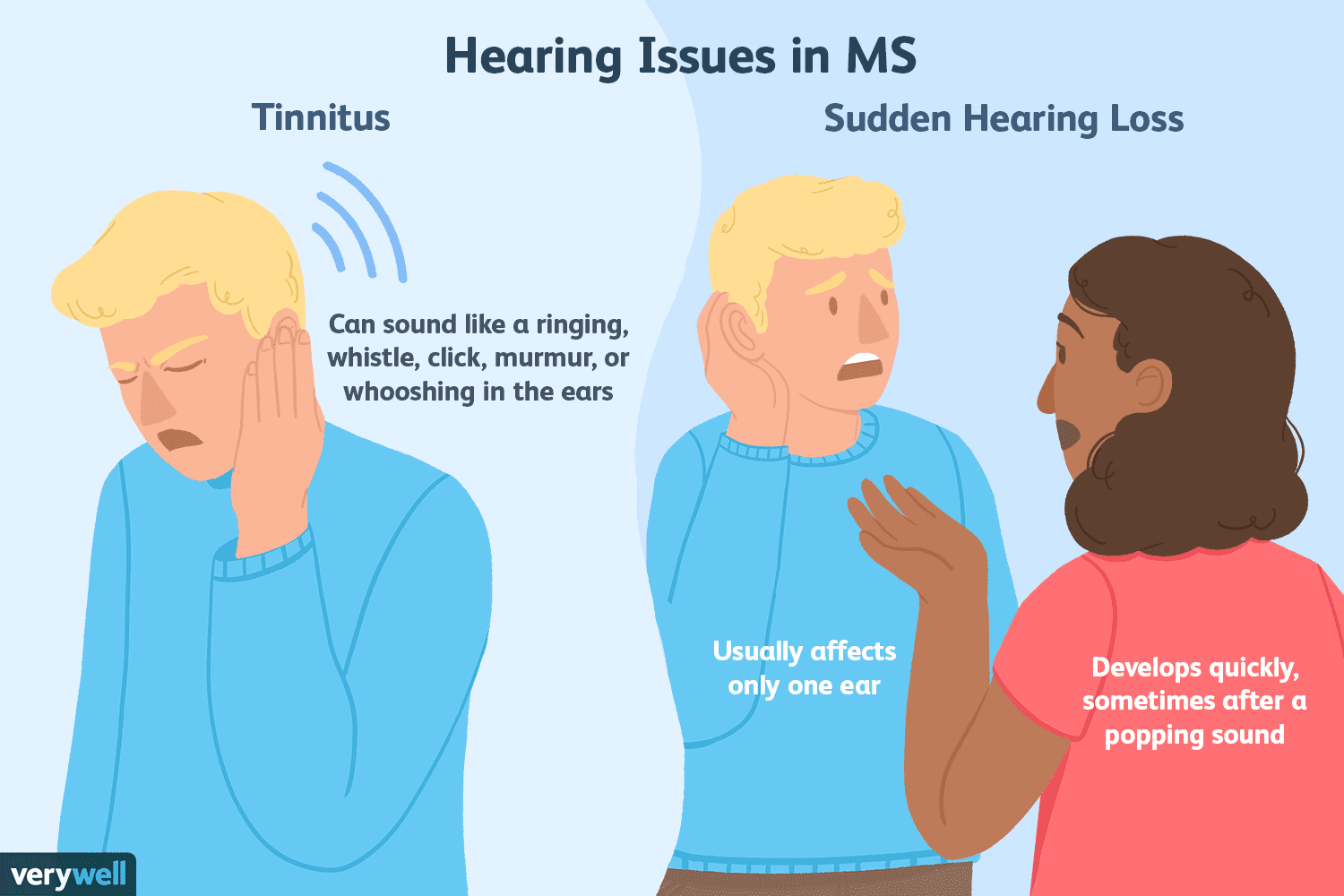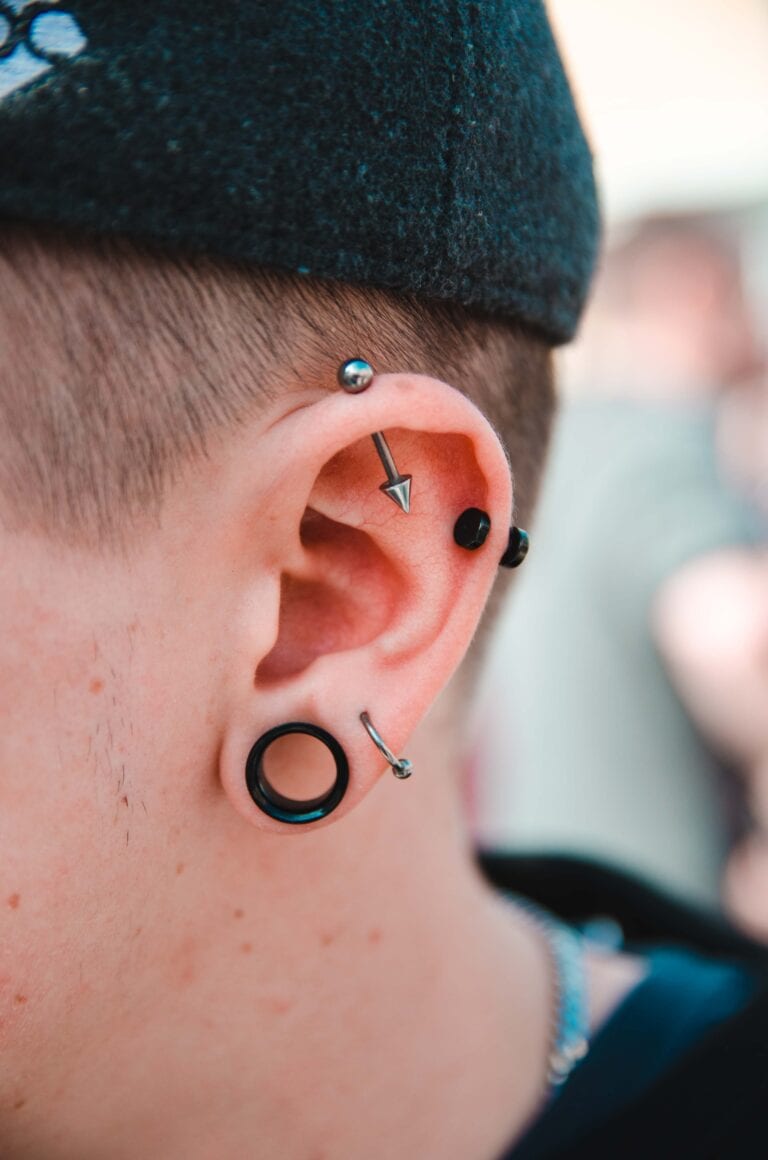Have you ever experienced that strange sensation when your ears seem to make noises all on their own? Whether it’s a gentle hum, a faint ringing, or a more intrusive rumbling, ear noises can range from merely annoying to downright alarming. Understanding what’s going on inside your ears is essential, especially if these sounds become persistent. In this blog post, we’ll dive into the intriguing world of ear noises, exploring their common types and possible causes. Let’s unravel the mystery behind those curious sounds, shall we?
Common Types of Ear Noises

When it comes to ear noises, there are several types your ears might produce. Each type can signal different things about your ear health. Here’s a breakdown of the most common noises:
- Tinnitus: Tinnitus is perhaps the most well-known type of ear noise. It's commonly described as ringing, buzzing, or hissing sounds heard in one or both ears. This condition can be caused by exposure to loud noises, earwax buildup, age-related hearing loss, or even certain medications.
- Ear Popping: Ever felt a sudden "pop" in your ears? This can happen when there’s a change in air pressure, such as during airplane flights or driving through mountains. It’s usually harmless and occurs when your Eustachian tubes adjust to equalize pressure.
- Rumbling: Sometimes, you might hear a low-frequency rumbling noise in your ears. This can be due to muscles in the middle ear contracting, usually in response to loud sounds, which is known as the acoustic reflex. The noise helps to protect your inner ear from damage.
- Clicking or Thumping: These sounds can be intermittent and are often related to movements in the jaw or the Eustachian tubes. If you've ever gulped or yawned and heard a clicking noise, that’s your Eustachian tube adjusting again—completely normal!
Understanding these different types of ear noises can help you identify what might be happening in your ears. If you experience persistent noises or any discomfort, it may be worthwhile to consult a healthcare professional for further evaluation.
Possible Causes of Rumbling Noises in Ears

Rumbling noises in your ears can be quite perplexing, can't they? They often come out of nowhere and leave you wondering what's happening. Let’s explore some possible causes of these curious sounds:
- Eustachian Tube Dysfunction: This is when the tube connecting your middle ear to the back of your throat doesn’t function properly. It can lead to pressure build-up, resulting in that rumbling noise.
- Tinnitus: This is a condition characterized by hearing noises that aren’t caused by external sounds. It may present as ringing, buzzing, or, indeed, a rumbling sound.
- Middle Ear Myoclonus: This rare condition involves involuntary muscle contractions in the middle ear. These contractions can create a rumbling sound, especially if they affect the stapedius muscle.
- Earwax Buildup: When too much earwax accumulates, it can lead to temporary hearing loss or sounds like rumbling as it responds to changes in pressure or movement.
- Changes in Air Pressure: Quick changes in altitude, whether you're flying, driving through mountains, or diving, can cause your ears to pop and rumble.
- TMJ Disorders: Issues with the temporomandibular joint (TMJ) can also lead to strange sounds in the ear, including rumbling.
- Hearing Loss: Sometimes, underlying hearing issues can manifest as unusual sounds in your ears, including rumbling noises.
These causes can vary in severity, so it’s always wise to seek professional advice if the rumbling persists or is accompanied by other symptoms.
The Role of Eustachian Tube Dysfunction

The Eustachian tube plays a crucial role in our ear health and overall balance. Let’s break down why dysfunction in this tube can lead to those pesky rumbling noises:
The Eustachian tube connects the middle ear to the nasopharynx (the part of the throat behind the nose), helping equalize pressure on both sides of the eardrum. When functioning correctly, it opens during activities like swallowing or yawning, allowing air to flow in and out. However, when this tube becomes blocked or fails to open properly, it can cause:
- Pressure Imbalance: Changes in altitude or allergens can block the Eustachian tube, causing a build-up of pressure in your ears, which may lead to rumbling sounds.
- Fluid Accumulation: Improper Eustachian tube function can result in fluid gathering in the middle ear, leading to a feeling of fullness and unusual noises.
- Inflammation: Conditions like allergies or respiratory infections can cause swelling, further impeding Eustachian tube function and resulting in strange sounds.
It’s essential to recognize that if you’re experiencing issues related to the Eustachian tube, there are various treatments available—from simple home remedies to medical interventions—so don’t hesitate to consult with a healthcare professional!
Effects of Stress and Anxiety on Ear Noises

Did you know that the mental state you find yourself in can significantly impact your ear health? Yes, stress and anxiety could be silently contributing to those annoying rumbling noises you're hearing! Let's break down how these two feelings connect to ear noises.
When you’re feeling stressed or anxious, your body goes into fight-or-flight mode. This is a natural response, but unfortunately, it can lead to physical effects, including:
- Tensed Muscles: When you're stressed, you might find yourself unconsciously tensing your neck, jaw, and even the muscles around your ears. This tension can affect how you perceive sounds.
- Increased Blood Pressure: Stress often raises your blood pressure, which can lead to pulsatile tinnitus. This condition makes you hear your heartbeat in your ears, often mistaken for rumbling noises.
- Heightened Sensitivity: Anxiety can make you more aware of body sensations, including slight noises. This increased focus can amplify sounds that you might normally ignore.
- Hyperventilation: When you’re anxious, your breathing might get rapid and shallow. This can lead to changes in blood flow that may contribute to ear sensations.
Understanding this connection is crucial. You might find that practicing relaxation techniques such as yoga, meditation, or even simple deep-breathing exercises can help ease your ear noises by reducing stress. Remember, taking care of your mental health is just as vital as addressing your physical symptoms!
When to Seek Medical Attention
Hearing rumbling noises in your ears can be frustrating, and knowing when to seek help is essential. While occasional noise might not be alarming, certain circumstances warrant a medical evaluation. Here are some signs that it may be time to consult a professional:
- Persistent Noise: If the rumbling noises last more than a few days or become constant, it's a good idea to seek medical attention.
- Accompanied Symptoms: If you experience additional symptoms like dizziness, pain, or hearing loss alongside ear noises, don’t ignore them!
- Effect on Daily Life: If the sounds are interfering with your daily activities or ability to concentrate, it’s worth exploring with a healthcare provider.
- Changes in Volume or Pitch: Sudden changes in the characteristics of the sounds you hear may indicate an underlying issue.
Consulting a healthcare professional can help you get to the bottom of your ear noises. They may conduct tests to assess your hearing, check for infections, or determine if other conditions are at play. Early intervention can lead to better outcomes!
Understanding the Causes of Rumbling Noises in Your Ears
Rumbling noises in your ears, often described as a sensation akin to sounds of thunder or distant machinery, can be concerning and annoying. These noises, medically referred to as "tinnitus," can vary in duration and intensity, leading many individuals to seek an understanding of what may be causing them. Below are some prevalent causes of these auditory disturbances:
- Earwax Buildup: Excessive earwax can block the ear canal, leading to pressure changes and resulting in rumbling sounds.
- Middle Ear Dysfunction: Eustachian tube dysfunction can lead to improper air pressure in the middle ear, causing various noises.
- Muscle Spasms: Involuntary contractions of the muscles in the middle ear can produce rumbling or clicking sounds.
- Exposure to Loud Noises: Loud sounds can cause temporary changes in hearing perception and may trigger tinnitus.
- Hearing Loss: Age-related or noise-induced hearing loss can manifest as rumbling or ringing noises.
- Medical Conditions: Conditions like Meniere’s disease, acoustic neuroma, or other ear disorders can lead to auditory disturbances.
In understanding these causes, it is essential to consider specific factors contributing to your individual experience. Keeping track of when and how often these rumbling noises occur can provide valuable information for healthcare providers.
| Cause | Description |
|---|---|
| Earwax Buildup | Excessive earwax obstructing the ear canal. |
| Middle Ear Dysfunction | Pressure imbalance in the middle ear. |
| Muscle Spasms | Involuntary muscle contractions causing sound. |
| Loud Noises | Temporary hearing changes due to exposure. |
| Hearing Loss | Changes in hearing ability over time. |
| Medical Conditions | Specific ear disorders leading to noises. |
In conclusion, understanding the various causes of rumbling noises in your ears can empower you to seek appropriate help and explore management strategies effectively. If such noises persist, consulting a healthcare professional is crucial for accurate diagnosis and treatment.
 admin
admin








